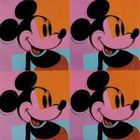Christiania
Christiania, also known as Freetown Christiania (Fristaden Christiania) is a self-proclaimed autonomous neighbourhood of about 850 residents, covering 34 hectares (84 acres) in the borough of Christianshavn in the Danish capital Copenhagen. Civic authorities in Copenhagen regard Christiania as a large commune, but the area has a unique status in that it is regulated by a special law, the Christiania Law of 1989 which transfers parts of the supervision of the area from the municipality of Copenhagen to the state. It was closed by residents in April 2011, whilst discussions continued with the Danish government as to its future, but is now open again. Christiania has been a source of controversy since its creation in a squatted military area in 1971. Its cannabis trade was tolerated by authorities until 2004. Since then, measures for normalising the legal status of the community have led to conflicts, and negotiations are ongoing. Among many Christiania residents, the community is known as staden ('the town'), short for fristaden ('the freetown').
The area of Christiania consists of the former military barracks of Bådsmandsstræde and parts of the city ramparts. The ramparts and the borough of Christianshavn (then a separate city) were established in 1617 by King Christian IV. After the military moved out, the area was only guarded by a few watchmen. On 4 September 1971, inhabitants of the surrounding neighbourhood broke down the fence to take over parts of the unused area as a playground for their children. On 26 September 1971, Christiania was declared open by Jacob Ludvigsen. In the paper, Ludvigsen wrote an article in which he and five others went on exploration into what he termed 'The Forbidden City of the Military'. The article widely announced the proclamation of the free town, and among other things he wrote the following under the headline Civilians conquered the 'forbidden city' of the military: The objective of Christiania is to create a self-governing society whereby each and every individual holds themselves responsible over the wellbeing of the entire community. Our society is to be economically self-sustaining and, as such, our aspiration is to be steadfast in our conviction that psychological and physical destitution can be averted. The spirit of Christiania quickly developed into one of the hippie movement, the squatter movement, collectivism and anarchism, in contrast to the site's previous military use.
Christiania is thus one of the greatest tourist attractions in Copenhagen, and abroad it is a well-known "brand" for the progressive and liberated Danish lifestyle. Many Danish businesses and organizations also use Christiania as a show place for their foreign friends and guests. The purpose is to show something Danish that cannot be found anywhere else in the world. Among the local users are many social security recipients, pensioners, immigrants and clients from social institutions. Single mothers also visit here, not to mention the many homeless and jobless young people. Greenlanders, street people and vagabonds, all find a sanctuary here. But many other people such as students, musicians, artists, intellectuals and academics visit the Freetown often. In Christiania the creative and recreational values are found in rich measure.
The people in Christiania have developed their own set of rules, independent of the Danish government. The rules forbid stealing, violence, guns, knives, bulletproof vests, hard drugs and bikers' colors. Famous for its main drag, known as Pusher Street, where hash and skunk weed were sold openly from permanent stands until 2004, it nevertheless does have rules forbidding 'hard drugs', such as cocaine, amphetamine, ecstasy and heroin. The hash commerce is controversial, but since the rules require a consensus they cannot be removed unless everybody agrees. Legalization of cannabis is one of the ideas of many of the citizens in Christiania. The region negotiated an arrangement with the Danish defence ministry (which still owns the land) in 1995. Since 1994, residents have paid taxes and fees for water, electricity, trash disposal, etc. After bitter negotiations that temporarily resulted in the area being sealed off to the public, in June 2011, the residents of Christiania agreed to collectively set up a fund to formally purchase the land at below market prices. Uncertainty remains over how the money will be raised.
There is also a small bazaar in front of Pusher Street with small vendors and pipe sellers. The local cinema and conference room. A bike manufacturer, inventors of the renowned Christiania and Pedersen bikes. Though mostly a jazz club this, the smallest venue in Christiania was originally a Kid's Theatre which now also houses an electric blues club and an alternative hip hop jam. Merchandise and souvenir shop. Commonly called Indkøberen, the grocery store of Christiania which deals predominantly with organic and fair-trade products. With over 2000 organic products in store the Christiania Grocery is one of the most specialized in Copenhagen. This small vegetarian restaurant in one of Christiania's more peaceful areas, the name meaning The Morning Place, is a former community kitchen. It has run as a collective for more than 20 years (as of 2009) dealing primarily with Danish organic food products. One of Christiania's oldest music venues is Musikloppen ("The Music Flea") or Loppen for short. It was founded as a jazz club in 1973 where it soon attracted more modern influences such as rock and rhythm'n'blues.
Christiania has the following opinions (reports) create opinion
ola

|
Christiania - hipisowska dzielnica w środku Kopenhagi | Jeżeli nie lubisz komercyjnych, przereklamowanych atrakcji turystycznych Christiania zdecydowanie przypadnie Ci do gustu. Jest to miejsce gdzie możesz spodziewać się wszystkiego od rastamanów z długimi dredami po dyrektorów w wyprasowanych garniturach popijających piwo. Jednak Christiania to nie... |




 2012-08-03 12:37:59 2012-08-03 12:37:59
|
Similar places by:
| Category |

|
other neighbourhood |
|---|---|---|
| Material |

|
cobblestone concrete water tree |
| Hint |

|
Dangerous people Free entrance |
Price 
|
gratis |
|---|---|
| Geographical coordinates | 55.6736785, 12.5993747 |
| Address | 1440 Copenhagen, Pusher Street |
| More information | official website |








 3x
3x